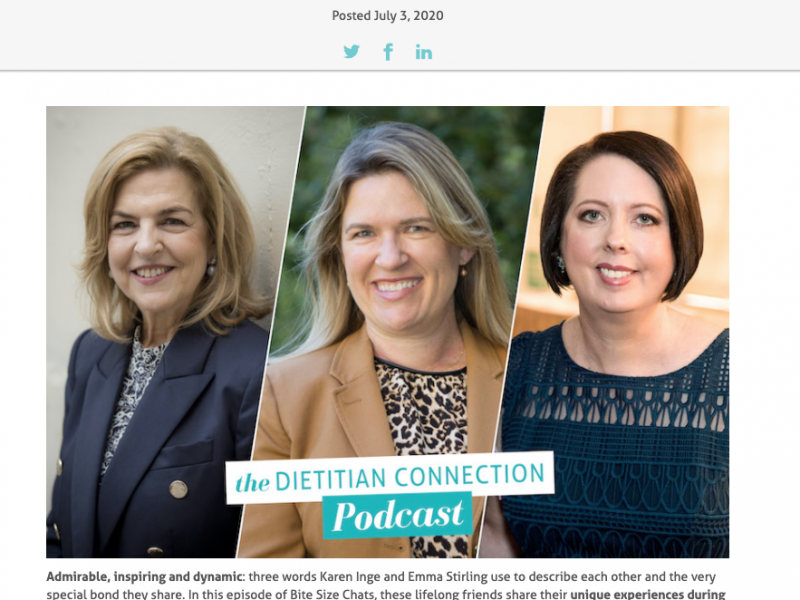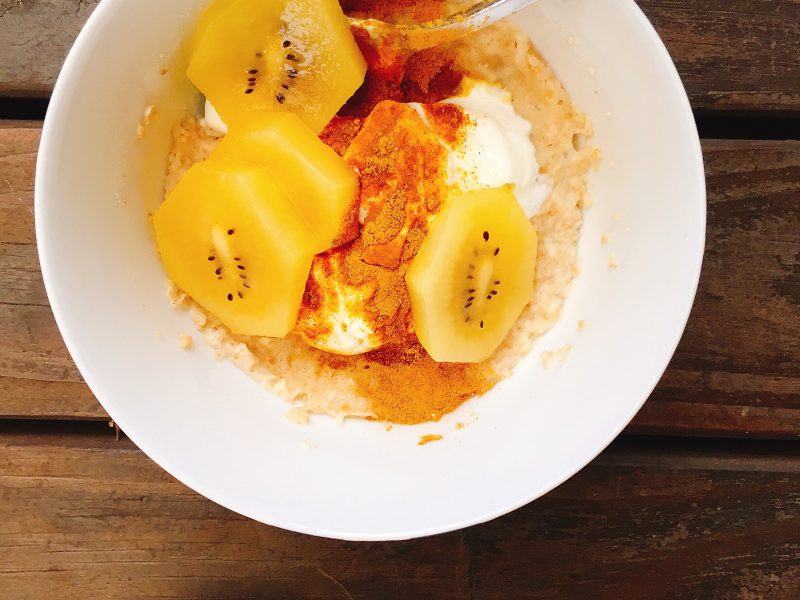Shut the sauerkraut pot lid. Who would of thought that fermented foods would be oh so hot right now? Everywhere I turn there is kimchi popping up in edgy burgers or free range hot dogs like at my local Candied Bakery. Or sauerkraut classes at the local community centre. Michael Pollan got all bubbly and excited with fermentation in Cooked and overcoming our overclean food supply. And I’ve just booked into an expert talk on The Art of Fermented Foods (details below) by the guru himself, Sandor Kats, on a world wide tour. Yep. A world wide tour on fermented foods. As a dietitian we go on constantly about the science of “good bugs” and yogurt, but what do we know about the health claims on other fermented foods. Are they over hyped old wives tales? Or like other ancient food traditions, is there actually a strong science story? We invited Tim Crowe back to investigate.
About our expert
Associate Professor Tim Crowe is a nutrition academic at Deakin University and is also an Accredited Practising Dietitian. Tim teaches about the role of nutrition in disease prevention and management, particularly diabetes and cancer. His research areas include specialised nutrition in the prevention of surgical complications, malnutrition and nutrition support in wound healing. He is very active in the media and also writes for many magazines and websites. Get more of his nutrition commentary through his blog Thinking Nutrition, Facebook page and connect with him on Twitter.
Acclaimed Candied Bakery in Melbourne.
Fermented foods have been in our diet for thousands of years. Beer and wine are classic examples of fermented foods where yeast converts sugars to alcohol. Other types of fermented foods use bacteria, such as Lactobacillus, to make foods like yoghurt, sauerkraut, kimchi and many others. And when you start talking about bacteria, you move into the realm of probiotics which come with a long list of health claims.
Probiotics and health
A probiotic is any live micro-organism which when consumed in adequate amounts, offers some form of a health benefit. The clinical evidence for probiotics is strongest for the treatment of diarrhoea (especially caused by antibiotics). A potential benefit in treating irritable bowel syndrome looks likely too. After this, inflammatory bowel disease, prevention of certain infant allergies such as atopic dermatitis, and an overall general protection against infection deserves considering, but the science is still evolving.
Novel areas of research are now even looking at direct links between gut bacteria and obesity and metabolic disorders such as diabetes. And now appearing on the horizon is some evidence to link gut bacteria with mood and behaviour – called psychobiotics – something we will likely hear more of in the future.
One of the prized cookbooks in my vintage library C1973.
Probiotic foods: more than just dairy
Any mention of probiotics immediately brings foods such as yoghurt and popular dairy based drinks like Yakult to mind. In much of the Western world, dairy get most of the attention for its probiotic benefit, but there are many other probiotic foods now being re-discovered.
Sauerkraut and Kimchi: Two well-known fermented foods with strong cultural ties are the German staple of sauerkraut and the traditional Korean dish of kimchi. Both these cabbage-based dishes are made by lactic acid bacteria fermentation. The main differences between them is sauerkraut is cut much finer and has no other ingredients apart from brine, while kimchi is cut into larger pieces and served with a variety of condiments such as chilli, garlic, pepper and fish sauce.
So how healthy is sauerkraut and kimchi? Cabbage itself is naturally high in fibre and contains isothiocyanate compounds, which have cancer-fighting properties. And as long as you choose unpasteurised sauerkraut, you will gain a potential probiotic benefit.
Several studies have found that kimchi may be a potent food in lowering cholesterol and controlling blood glucose. A just published study involving 100 volunteers who followed a low or high kimchi diet for 7 days in a controlled housing dormitory found dose effects of kimchi on fasting blood glucose, total glucose, total cholesterol and LDL-cholesterol.
Kefir: Kefir is an interesting probiotic food as on the surface appears similar to yoghurt. Kefir can be made from milk from any ruminant animal, but is fermented with a different variety of bacteria and uses a starter culture that also contains yeast. A 2013 review on the health benefits of regular kefir consumption found good evidence for its antimicrobial activity, improved gut health, anti-carcinogenic activity, control of blood glucose and cholesterol, improved lactose digestion and a stronger immune system. Quite an impressive list indeed.
Natto: Another popular non-dairy probiotic food is the Japanese staple of natto, which forms the base of miso soup and many other foods. It is made by the fermentation of soybeans with the bacterium Bacillus subtillis. Natto offers some of the health benefits similar to soy foods, but with additional value coming from its probiotic properties. Interestingly, natto contains the enzyme nattokinase which may reduce blood clotting risk in thrombosis as it can degrade fibrin.
Kombucha: Moving out of the realm of solid science, we have an emerging ‘star’ on the fermented food stage, that being kombucha. With origins in China, kombucha is made from a sweet tea base that has been fermented with a symbiotic colony of bacteria and yeast. Popular in the health food, juice and detox scene, it is sometimes called ‘mushroom tea’ – getting its name from the brown slimy crust that forms on the surface of the beverage.
Claimed to be a super health elixir with a long list of health benefits, kombucha is one drink where science has yet to catch up. So far no clinical trials have been published in humans. Considering its boutique price premium, unless you plan to make your own, I would be looking elsewhere for my probiotic hit.
While the long list of health claims from eating fermented looks impressive, the evidence for some of them is certainly trailing. People have been eating fermented foods for thousands of years and they certainly have a role to play in any diet. Fermented foods are not a silver health bullet, but when added to a healthy diet, have the potential to make it even healthier.
Editor’s comment:
Thanks Tim. It’s great to see these recent studies and focus on traditional foods and diet practices, even if some of the claims are lacking evidence, for now, at least. Just remember if it sounds too juicy to be true…. You may like our post on tempeh and my recipe for Preserved (fermented) Lemons or Sourdough Chia Bread too. If you want to catch a class or talk by Sandor checkout the dates and locations here. And with such a multicultural community I’m sure you have some tips for us lovely readers? Are you a “fermentation revivalist”?




